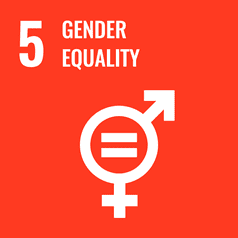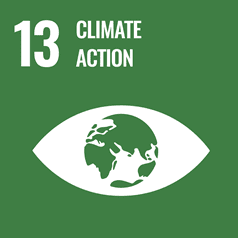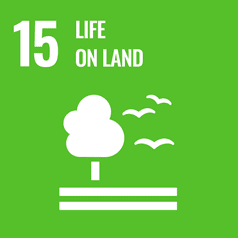2024 seed funded research with University of Waikato
The Partnership Seed Fund launched in 2023 between the University of Newcastle and the University of Waikato supports international collaboration for innovative research, knowledge sharing and expertise to deliver positive change and build capability.

We are delighted to announce the eight new projects that have received the partnership seed fund for 2024! There was a high level of engagement in this second funding round, with 17 applications submitted. We would like to thank all the project teams who applied to support the partnership between our institutions.
We hope to offer a further round of funding in 2025.
PROJECT: Culturally appropriate palliative care for Chinese in aged residential care
University of Newcastle lead: Dr Minah Gaviola, College of Health, Medicine and Wellbeing
University of Waikato lead: Prof Matthew Parsons
Despite the strong preference for family caregiving, people of Chinese ethnicity do access aged residential care for palliative care and there is limited research and no existing model of care for people of Chinese ethnicity in NZ or Australian aged residential care. Limited knowledge of older Chinese people’s cultural values and beliefs surrounding palliative care may lead to care that is not culturally appropriate.
This research project will focus on understanding the provision of palliative care to older people of Chinese ethnicity in an aged residential care setting. The research will include interviews with older Chinese residents and family members and focus groups with registered nurses.
This project has the potential to extend to other culturally and linguistically diverse communities and has potential impact on government policy, service provision and industry practice changes.
PROJECT: Contraceptive access and use among LGBTQ+ women
University of Newcastle lead: Dr Melissa Harris, College of Health, Medicine and Wellbeing
University of Waikato lead: Dr Sonja Ellis (Education)
This project addresses the gap in research, policy and practice of contraceptive access and use among LGBTQ+ women. The project seeks to understand the contraceptive practices of two generations of LGBTQ+ women over time. Research into the contraceptive use of this under-represented cohort has the potential for a significant impact on improving women’s health in Australia and New Zealand through sexual health education and improving GP knowledge in clinical practice.
The findings of this initial work will provide a much-needed evidence-base for the development of policy guidelines and interventions aimed at improving equitable access to contraceptive services for LGBTQ+ women. This research will contribute towards the goals of the National Women’s Health Strategy 2020-2030 (Australia) and the Women’s Health Strategy (New Zealand) in delivering equitable services to all women.
PROJECT: Light-Weight Active Security for Resource-Constrained Devices in Smart Farming
University of Newcastle lead: Dr Xiao Chen, College of Engineering, Science and Environment
University of Waikato lead: Dr Farzana Zahid (HECS)
Smart farming and precision agriculture aim to enhance agricultural productivity using advanced sensing, artificial intelligence and data-driven decision-making. However, the widespread adoption of internet-connected devices could lead to cyberattacks. Conventional security measures often fall short for these devices.
The Rural AI project has launched several smart farming initiatives across the UK, US, Australia, and New Zealand. This research collaboration with the Rural AI team aims to strengthen the security of the Rural AI infrastructure and tackle security challenges that could affect the availability and integrity of devices.
By the end of the seed-funded period there will be a proof of concept and small scale, real-world deployment of a lightweight, active security solution. This research project aims to maintain the integrity, availability, and robustness of farming data and operations in the new era of smart agriculture.
PROJECT: Development of an Australian Marine Biosecurity educational resource for regional schools in NSW
University of Newcastle lead: Dr Caelli Brooker, Wollotuka Institute
University of Waikato lead: Elizabeth Copeland (HECS)
Marine Invaders is an educational, scientific card game, designed by co-applicant Copeland that enables the everyday person to be a citizen scientist. The game identifies native and invasive pest species and was launched in December 2023 in English and Te Reo Māori versions.
This research project builds on the success of Marine Invaders to produce a new edition that is uniquely Indigenous Australian. The game will support environmental conservation, enhance biosecurity through citizen science, encourage students to embrace Australian biodiversity and culture, and promote Indigenous creativity and enrolment in STEM subjects.
Project partners include Deady Science, Australia’s leading Indigenous STEM charity working with over 800 schools and Shirty Science, a social enterprise using t-shirts to replace the lab-coat stereotype. The artwork created for the game will be featured as a t-shirt for sale globally.
PROJECT: From Awareness to Action: Advancing Cultural Safety & Indigenous Student Access to Medical and Health Education
University of Newcastle lead: Dr Elissa Elvidge, College of Health, Medicine and Wellbeing
University of Waikato lead: A/Prof Waikaremoana Waitoki (FMIS)
Institutional racism and a lack of Cultural Safety in medical education are barriers to increasing Indigenous health professionals in Aotearoa New Zealand and Australia. There are approximately 400 Aboriginal and Torres Strait Islander doctors in Australia. That's less than 0.5% of the workforce.
Nationally the University of Newcastle graduates the highest number of indigenous medical doctors due to the support provided by the Thurru Indigenous health team. This project proposes that the University of Waikato and the University of Newcastle join forces to inform future curriculum development to provide a culturally safe pipeline into professional health programmes for indigenous people.
A culturally safe health system would deliver safe, accessible and responsive healthcare free of racism. This requires ongoing critical reflection of health practitioners’ knowledge, skills, attitudes and behaviours and a change in thinking about power relationships and patients’ rights.
PROJECT: Combining 21st century geotechnologies to understand coastal evolution and predict shoreline behaviour
University of Newcastle lead: Dr Rafael Carvalho, College of Engineering, Science and Environment
University of Waikato lead: Dr Andrew La Croix (HECS)
Coastal erosion poses significant threats to community, private property and critical infrastructure, particularly after extreme storm events which are increasing in magnitude and frequency. This project will demonstrate that understanding the dynamic nature of coastal zones is essential for adequate coastal planning and management in a changing world.
This project investigates the evolution of two distinct coastal areas (Manning River/Australia and Rangitaiki/NZ). The sandy dunes in these areas preserve the sedimentary record of paleo shorelines and storm events. Innovative remote sensing, geophysics, and geochronology techniques will be used to and understand their storm history by mapping both present-day land surfaces and buried layers, in combination with coring and sediment dating. The results will allow us to compare how the two differing coastlines evolved to better understand how they will behave under future conditions.
PROJECT: Exploring Indigenous Perspectives on Medicinal and Edible Plants in Māori and Australian Aboriginal Cultures
University of Newcastle lead: A/Prof Liz Cameron, College of Engineering, Science and Environment
University of Waikato lead: Dr Sandi Ringham (ALPSS)
Western conservation programs in New Zealand and Australia have failed to stop escalating threats to Australian and Aotearoa ecosystems. The alarming track record of species and cultural loss highlights the urgent need for a substantial shift in the management of biological and cultural assets. Compounding this challenge is diminishing Indigenous knowledge and languages, significant gaps in public understanding of the impacts of these losses, and obstacles to Indigenous involvement in conservation.
This collaborative, Indigenous-led research project re-evaluates conservation strategies, emphasising Indigenous-led approaches to safeguard Australia's and Aotearoa’s biodiversity and cultural heritage. The project expolores the cultural and spiritual bonds embedded in medicinal and edible plants across Australia and Aotearoa and takes an arts-based inquiry approach to develop a co-designed course focused on the Indigenisation of curricula. The project will encourage student-to-student interaction online and opportunities for student exchange.
PROJECT: Histories for the Future: Co-teaching global history for equity and sustainability
University of Newcastle lead: A/Prof Julie McIntyre, College of Human and Social Futures
University of Waikato lead: Dr Kate Stevens (ALPSS)
Aotearoa New Zealand and Australia share a past as settler colonial nations that emerged from British imperialism. This ‘shared history’ of colonisation presents challenges to both nations as they grapple with teaching ‘difficult histories’. While global history is a widespread international and intercultural framework for understanding the interconnection of peoples and places worldwide, global history teaching resources lack capacity on Aotearoa New Zealand and Australia. This project aims to address this lack by co-designing and co-teaching history curriculum and resources, and delivering learning experiences that bring Newcastle and Waikato students together.
Students in both institutions will be encouraged to share interpretations of historical source material and discuss the impact of colonialism, Indigenous cultural resistance and resurgence, capitalism, and the environment.
Related news
The University of Newcastle acknowledges the traditional custodians of the lands within our footprint areas: Awabakal, Darkinjung, Biripai, Worimi, Wonnarua, and Eora Nations. We also pay respect to the wisdom of our Elders past and present.





